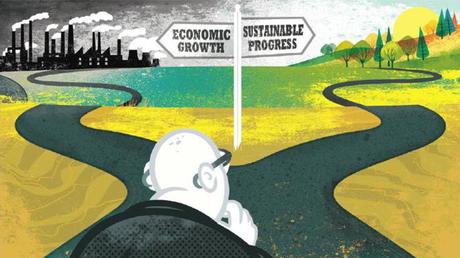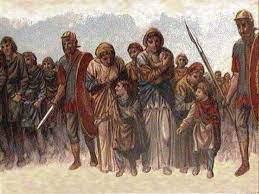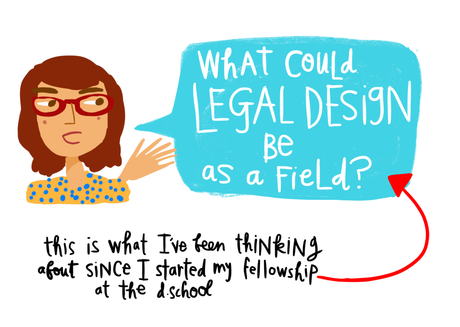It has not been possible, for forty or fifty years now, to combat pollution, depletion of the earth, emissions of CO2 and NOx, reduction of diversity in nature, etc. Apparently we always do something the same, or more of the same, and that always leads to the same poor result. Or to ultra-solutions: seemingly perfect solutions that turn the other way around.
What has been since the Club of Rome and Al Gore the mechanics of mitigation Global Warming and Sustainability? How can we go beyond moral calls to action, to change the driving forces that perpetuate the status quo and prevent massive solutions? How can we change the mechanisms that regulate the behavior of societies? That is the process, technique, or system for achieving a result.
Economic theory
We described earlier that the prevailing economic theory is a serious handicap. Growth is central to this. It all leads to within theory logical ¨ solutions. The result is enormous consumerism. Hordes of people enjoy shopping on their days off. We could argue that mainstream economic thinking, especially that of the necessity of growth therein, automatically directs companies and people into more pollution, more depletion of resources, etc.
 De-growth?
De-growth?
De-growth is a movement to escape this, but so far we see only a philosophical approach and not yet a translation into a robust economic theory.
Roman Law
We also see that necessary changes in the behavior of people and companies are hindered by legal concepts. We would look at the basis of the current legal order – our legal theories, the language of justice and injustice, the distinction between public and private, our idea of property, possession and freedom. These concepts all date from the time of the Romans. And since lawyers always (have to) fall back on previously formulated law, recursive legislation has emerged with clear traces of the original concepts from Roman Law.
 Law based on slavery
Law based on slaveryDavid Grabber and David Wengrow talk about this in their book The Dawn of Everything. ¨It is important to consider who those Roman jurists actually were who laid the foundation for our current legal order. Although they spent their public lives as magistrates making rational judgments, they spent their private lives in households where not only were they almost completely in control of their wives, children, and other subordinates, but where they were also provided in their needs by tens, perhaps hundreds slaves.”
Perhaps we could design a new law system that involves ethical and ecological values of our time, not that of echoes from the Roman era.
A New Design of the Law
It would be interesting to further develop the metaphor of shifting the river delta – how do you do that and what plays a role. A far-fetched metaphor is a powerful technique for escaping existing thought patterns.

Could we translate the terms from this Wikipedia description to change our thinking about legal concepts? After all, they regulate public life and make us behave, behave as formulated and conceived by the Romans, essentially traced back to the slave laws.
Perhaps we should redesign the entire building of Roman law-derived rules, jurisprudence and legal literature, as well as policy and administrative systems. Perhaps we could change the river delta – the course of the rivers – of numerous automatic-driven decisions in daily life?
Our earlier posts
Mitigating Global Warming. A concise overview of the taken-for-granted approaches. Let’s escape from them.
Escaping Thinking-as- Usual about Global Warming. Having summarized existing approaches, could we escape from those and find fresh approaches to mitigate or even counteract the effects of climate change? Try to come up with at least three ¨escapes¨: alternative approaches to mitigate global warming.
Global Warming and Economic Theory. Something extraordinarily strange happens when we ask about the relationship between economic theory and global warming. The real question is: ¨How do we change the mechanics of our daily, nearly automated or conditioned choices, in families, companies and governments? ¨ We need definitely better ideas than ¨best money¨.
Eco-conversationalists or Eco-mechanisms? Most contributors to mitigating global change and sustainability are the usual “eco-conversationalists¨, repeating the same memes over and over again.
Concepts explained by Wikipedia
Degrowth. De-growth is based on ideas from a diverse range of lines of thought such as politicalecology, ecological economics, feminist political ecology, and environmental justice, pointing out the social and ecological harm caused by the pursuit of infinite growth and Western “development” imperatives. Degrowth emphasizes the need to reduce global consumption and production and advocates a socially just and ecologically sustainable society with social and environmental well-being replacing GDP as the indicator of prosperity.
Roman law. Roman Law is the legal system of ancient Rome, including the legal developments spanning over a thousand years of jurisprudence, from the Twelve Tables (c. 449 BC), to the Corpus Juris Civilis (AD 529) ordered by Eastern Roman emperor Justinian I. Roman law forms the basic framework for civil law, the most widely used legal system today, and the terms are sometimes used synonymously. The historical importance of Roman law is reflected by the continued use of Latin legal terminology in many legal systems influenced by it, including common law.
Slavery in ancient Rome. Slavery in ancient Rome played an important role in society and the economy. Besides manual labour, slaves performed many domestic services and might be employed in highly skilled jobs and professions. Accountants and physicians were often slaves. Slaves of Greek origin in particular might be highly educated. Unskilled slaves, or those sentenced to slavery as punishment, worked on farms, in mines, and at mills.
Recursion. Recursion occurs when a thing is defined in terms of itself or of its type.
River delta. River deltas form when a river carrying sediment reaches a body of water, such as a lake, ocean, or reservoir. When the flow enters the standing water, it is no longer confined to its channel and expands in width. This flow expansion results in a decrease in the flow velocity, which diminishes the ability of the flow to transport sediment. As a result, sediment drops out of the flow and is deposited as alluvium, which builds up to form the river delta.
